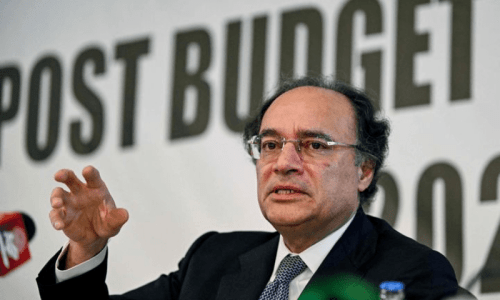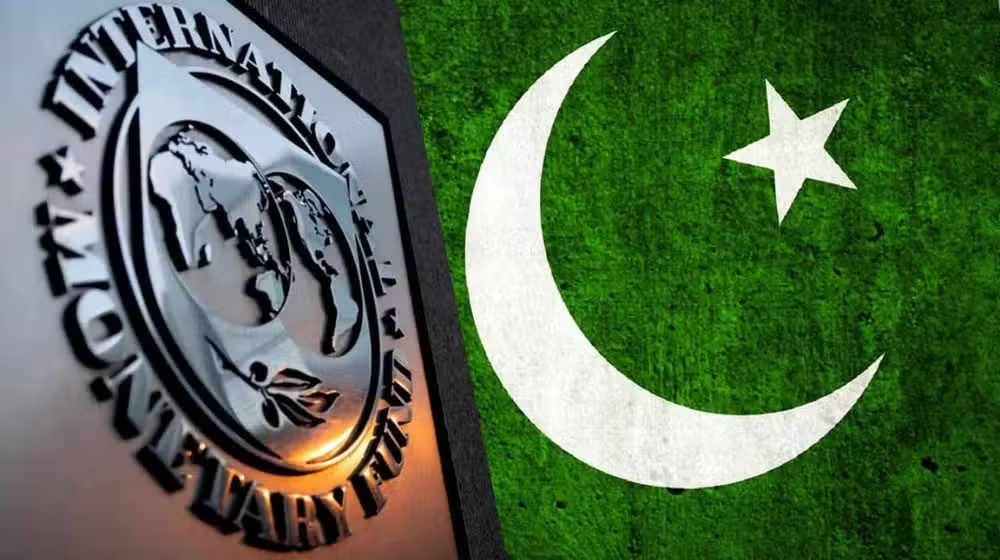WASHINGTON: Finance Minister Muhammad Aurangzeb has expressed hope for heightened investments in the upcoming phase of the China-Pakistan Economic Corridor (CPEC). He emphasized that CPEC has shifted from a government-to-government investment model in its initial phase to a business-to-business engagement in its second phase.
In an interview with the US edition of China’s CGTN network, Aurangzeb highlighted CPEC as the “champion project” of China’s Belt and Road Initiative. He noted the significant infrastructure developments achieved during the first phase, particularly in road networks and ports. The finance minister underscored the importance of the second phase and conveyed Pakistan’s anticipation of increased Chinese investments to support this endeavor. He extended his gratitude to the Chinese government and banks for their assistance in debt rollovers, while reiterating Pakistan’s commitment to repaying its financial obligations.
Shift to Business-to-Business Engagement
During a separate meeting on Saturday with China’s Vice Minister of Finance, Liao Min, Aurangzeb reaffirmed the enduring strategic cooperative partnership between Pakistan and China. He expressed appreciation for China’s steadfast support in Pakistan’s socio-economic development and its role in securing the IMF’s Extended Fund Facility (EFF).
Addressing Energy Challenges
While attending the annual meetings of the International Monetary Fund (IMF) and the World Bank Group, Aurangzeb engaged in high-level discussions with key international stakeholders, including US officials and representatives from leading financial institutions. In a meeting with US Assistant Secretary of State for Energy Resources Geoffrey Pyatt, he addressed challenges in Pakistan’s energy sector and the comprehensive reforms being introduced, acknowledging US support in facilitating Pakistan’s transition to renewable energy sources.
Additionally, he met with Reta Jo Lewis, President of the Export-Import (EXIM) Bank of the United States, to encourage closer collaboration in the energy, minerals, and IT sectors. Aurangzeb assured Lewis that necessary data would be provided to facilitate the bank’s market entry evaluation and sought clarification on the US nexus requirements for goods and services financed or insured by the EXIM Bank.
Engaging with Financial Institutions
Aurangzeb also met with Mohammad Kallala, Global Head of Corporate and Investment Banking at Natixis, to discuss the bank’s operations in infrastructure, renewable energy, transportation, aviation, and technology sectors. They explored potential partnerships with Gulf investors, particularly from Saudi Arabia, for financing and advisory support in Pakistan.
In another discussion, Karan Bhatia, Vice President and Global Head of Government Affairs and Public Policy at Google, outlined the company’s recent activities in Pakistan and its plans to expand investments in the country. Bhatia raised various regulatory and financial concerns that need addressing to support these initiatives.
Positive Ratings Outlook
The finance minister also met with representatives from Moody’s credit rating agency, where he expressed appreciation for the recent upgrade of Pakistan’s credit rating to Caa2. He highlighted ongoing engagements between the Ministry of Finance and the central bank with rating agencies, including a detailed briefing on Pakistan’s debt sustainability, monetary policy, and fiscal discipline.
Aurangzeb also conveyed hopes for a rating upgrade in discussions with representatives from S&P Global. During a meeting with ADB President Masatsugu Asakawa, he commended the Asian Development Bank’s partnership in supporting Pakistan’s development agenda and expressed optimism for finalizing the Country Partnership Framework soon.
ALSO READ:
https://flarenews.pk/2024/10/27/pti-distances-itself-from-plea-filed-in-ihc-on-behalf-of-imran-khan/


